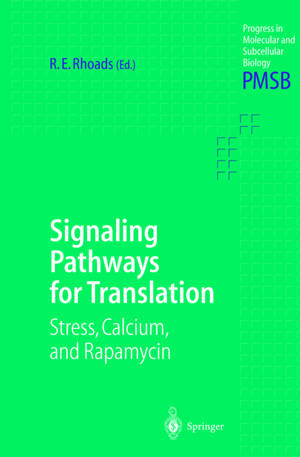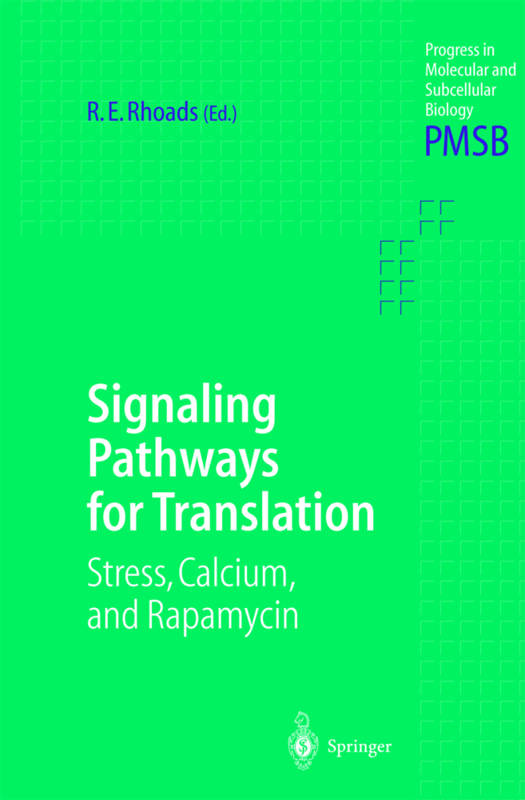
- Afhalen na 1 uur in een winkel met voorraad
- Gratis thuislevering in België vanaf € 30
- Ruim aanbod met 7 miljoen producten
- Afhalen na 1 uur in een winkel met voorraad
- Gratis thuislevering in België vanaf € 30
- Ruim aanbod met 7 miljoen producten
Zoeken
Signaling Pathways for Translation
Stress, Calcium, and Rapamycin
€ 158,45
+ 316 punten
Omschrijving
A diversity of stressful conditions cause rapid and severe inhibition of protein synthesis in eukaryotic ceIls, in some cases resulting in cell death by apopto sis (programmed cell death). Apoptosis has come to be recognised as an impor tant physiological process in the regulation of growth, development and differentiation. Until recently, relatively little attention had been paid to the changes in protein synthesis during the various phases of apoptosis. The arti des in the present volume are by major contributors to our understanding of signaling pathways that result in the inhibition of protein synthesis. These authors trace the downstream consequences of such stress conditions as virus infection, heat shock, nutrient starvation, release of intracellular calcium ions, and treatment with the immunosuppressant rapamycin. Understanding the mechanisms by which the biosynthesis of pro teins is regulated is important for several reasons. Pro tein synthesis consumes a major portion of the cellular ATP that is generated. Therefore, small changes in pro tein synthesis can have great consequences for cellular energy metabolism. Translation is also a major site for control of gene expression, since messenger RNAs differ widely in translational efficiency, and changes to the protein syn thesis machinery can differentially affect recruitment of individual mRNAs.
Specificaties
Betrokkenen
- Uitgeverij:
Inhoud
- Aantal bladzijden:
- 178
- Taal:
- Engels
- Reeks:
- Reeksnummer:
- nr. 27
Eigenschappen
- Productcode (EAN):
- 9783540417101
- Verschijningsdatum:
- 17/07/2001
- Uitvoering:
- Hardcover
- Formaat:
- Genaaid
- Afmetingen:
- 156 mm x 234 mm
- Gewicht:
- 449 g

Alleen bij Standaard Boekhandel
+ 316 punten op je klantenkaart van Standaard Boekhandel
Beoordelingen
We publiceren alleen reviews die voldoen aan de voorwaarden voor reviews. Bekijk onze voorwaarden voor reviews.










